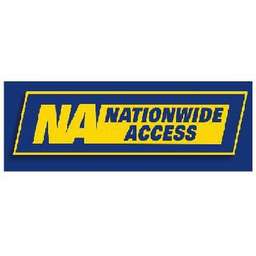HMRC Targeting EBay, Vinted & Depop Sellers With Nudge Letters

Table of Contents
Understanding HMRC Nudge Letters
HMRC nudge letters are essentially friendly warnings, prompting online sellers to review their tax returns and ensure compliance. They aren't necessarily accusations of wrongdoing, but rather an indication that HMRC has noticed activity suggesting potential discrepancies between your reported income and your actual sales.
What triggers an HMRC nudge letter? Several factors might lead to one, including:
- Discrepancies in reported income: A significant difference between your declared income and the information HMRC has gathered from online marketplaces or other sources.
- High sales volume: Consistently high sales volume, exceeding typical thresholds for individual sellers, could raise a red flag.
- Unusual transaction patterns: Uncharacteristic spikes in sales or unusual types of transactions might trigger further investigation.
- Lack of tax registration: If you're required to register for VAT but haven't done so, you're likely to receive a nudge letter.
These letters typically contain information requesting clarification on your sales, expenses, and tax declarations. They might ask for supporting documentation to verify your income and expenses. You might see phrasing such as: "We have reason to believe that your reported income may be understated," or "Please provide further details regarding your sales activity on [Platform Name]."
Checklist of Common Reasons for Receiving a Nudge Letter:
- Significant increase in sales compared to previous years.
- Failure to register for VAT when required.
- Inconsistent or incomplete record-keeping.
- Discrepancies between declared income and bank statements.
- Sales of high-value items without proper declaration.
Tax Obligations for Online Sellers
Selling goods online, whether on eBay, Vinted, or Depop, brings significant tax responsibilities. Understanding these obligations is vital for avoiding HMRC scrutiny and potential penalties.
Income Tax: Profit from online sales is considered income and is subject to Income Tax. You must declare all profits on your Self Assessment tax return. This includes subtracting allowable business expenses from your gross income.
VAT (Value Added Tax): If your sales exceed the VAT registration threshold (currently £85,000 in the UK), you are legally required to register for VAT and charge VAT on your sales. Failing to do so can result in substantial penalties.
Capital Gains Tax: If you sell assets for a profit that are not part of your regular business activity (e.g., selling a valuable collectible), you may be liable for Capital Gains Tax.
Record-Keeping: Accurate record-keeping is paramount. Keep detailed records of all sales, expenses, and any other relevant financial transactions. This includes:
- Invoices or sales receipts.
- Proof of purchase for expenses.
- Bank statements showing income and expenses.
Bullet points: Specific tax obligations:
- Low Sales Volume (<£1,000): Generally, you only need to declare profits on your Self Assessment.
- Moderate Sales Volume (£1,000-£85,000): Declare profits on your Self Assessment. Consider VAT registration if approaching the threshold.
- High Sales Volume (Over £85,000): You're required to register for VAT, charge VAT on your sales, and file VAT returns regularly.
Responding to an HMRC Nudge Letter
Responding promptly and accurately to an HMRC nudge letter is crucial. Ignoring it will only exacerbate the situation and could lead to more serious consequences.
Steps to take:
- Read the letter carefully: Understand exactly what information HMRC is requesting.
- Gather necessary documentation: Collect all relevant sales records, expense receipts, and bank statements.
- Prepare a detailed response: Clearly and concisely answer all questions posed in the letter.
- Submit your response within the given deadline: Late responses can lead to further investigation and penalties.
- Seek professional help if needed: If you're unsure how to respond or need assistance with your tax affairs, consult a tax advisor or accountant.
Potential consequences of ignoring an HMRC nudge letter:
- Further investigation, leading to a full tax audit.
- Penalties and interest charges on unpaid taxes.
- Legal action in severe cases.
Checklist of actions when receiving a nudge letter:
- Acknowledge receipt of the letter.
- Gather all required documentation.
- Prepare a detailed response.
- Submit your response by the deadline.
- Keep a copy of your response and supporting documents.
Preventing Future Nudge Letters
Proactive tax planning is the best way to avoid future HMRC scrutiny.
- Utilize accounting software: Software like Xero or FreeAgent can automate record-keeping and streamline your tax processes.
- Regularly review your tax obligations: Stay informed about changes in tax laws and ensure you're meeting all your obligations.
- Set up proper invoicing procedures: Issue professional invoices with all necessary information.
- Understand different tax reporting requirements: Familiarize yourself with the specific requirements for your sales volume and type of goods.
Practical tips for avoiding future HMRC scrutiny:
- Keep meticulous records of all income and expenses.
- Register for VAT when required.
- File your Self Assessment tax return on time.
- Seek professional tax advice if needed.
- Stay updated on HMRC guidelines and changes in tax legislation.
Conclusion
Understanding your tax obligations as an online seller on platforms like eBay, Vinted, and Depop is crucial for avoiding HMRC scrutiny. Ignoring HMRC nudge letters can lead to serious consequences, including penalties and legal action. By maintaining accurate records, understanding the relevant tax thresholds, and seeking professional advice when needed, you can ensure HMRC compliance and protect your online selling business. Don't ignore those HMRC nudge letters! Ensure your online selling business is compliant by reviewing your tax obligations today. Contact a tax advisor for assistance if necessary. Proactive management of your "eBay tax," "Vinted tax," and "Depop tax" will safeguard your future.

Featured Posts
-
 Old North State Report May 9 2025 Top Stories And Updates
May 20, 2025
Old North State Report May 9 2025 Top Stories And Updates
May 20, 2025 -
 Hmrc Website Unavailable Nationwide Access Problems Reported
May 20, 2025
Hmrc Website Unavailable Nationwide Access Problems Reported
May 20, 2025 -
 Synaylia Stin Dimokratiki Kathigites Toy Dimotikoy Odeioy Rodoy
May 20, 2025
Synaylia Stin Dimokratiki Kathigites Toy Dimotikoy Odeioy Rodoy
May 20, 2025 -
 Poslednie Novosti O Mikhaele Shumakhere Drug Rasskazal O Tyazheloy Situatsii
May 20, 2025
Poslednie Novosti O Mikhaele Shumakhere Drug Rasskazal O Tyazheloy Situatsii
May 20, 2025 -
 Le Bo Cafe De Biarritz Une Nouvelle Page S Ecrit
May 20, 2025
Le Bo Cafe De Biarritz Une Nouvelle Page S Ecrit
May 20, 2025
